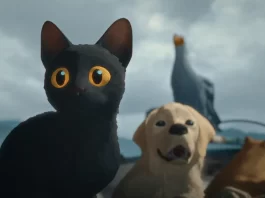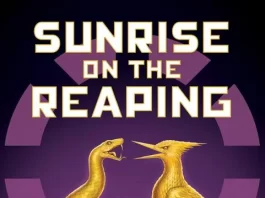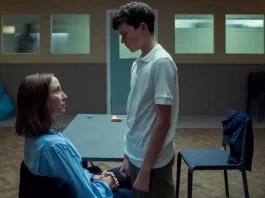Last week — on Tuesday, I think — I watched all of Netflix’s The End of The F***ing World in one sitting. Granted, the Netflix Original production only runs eight episodes long with a runtime of around 20 minutes per episode. What’s interesting, though, is that my binge-watching is neither an isolated phenomenon among my age group (or any age group, really), nor is it a new behaviour. The difference between binging through all of Breaking Bad, and binging through any of Netflix’s more recent original programing is clear: shows like The End of The F***ing World are made to be binged. This is apparent even in the way we’ve begun to speak about television. We don’t crowd around the water cooler and excitedly tell our disinterested co-workers about the latest jaw-dropping episode, we tell them about the season.
Broadly speaking, television has very successfully encroached on the movie industry. On-demand entertainment providers like Netflix managed to build a platform which didn’t just blur the line between what a movie and a television show is, but it almost single-handedly decimated the DVD/blu-ray industry. Very few, if any, people buy copies of the latest Marvel Studios movie precisely because they know it will invariably pop up on Netflix, and in the meantime, there are digital copies available from just about every tech giant from Microsoft to Amazon.
Netflix, to its credit, has found a way to keep their audiences coming back for more through niche marketing. For example, Netflix has produced a lot of foreign-language crime dramas. I stopped counting after finding 20 of them. All were released within the past three years. These wouldn’t be made if Netflix didn’t know, beyond a shadow of a doubt, that people would watch them. Moreover, Netflix’s habit of breaking everything up into genres gives viewers a limited palette from which to choose. It blinds them to the possibility that there may be productions that don’t follow genre conventions.
This might not immediately seem problematic; the fact that people can find more of what they like ought to be a good thing, right? Once we take into account what’s happening on the big screen, however, we realize there are consequences that have already begun to change the way we think about entertainment. Moreover, it’s painfully evident that Hollywood just doesn’t know how to deal with the Netflix problem.
Now, television shows haven’t entirely replaced movies as entertainment. There are still theatre wide releases that people turn out in droves for. Marvel Studios’ entire catalogue of movies are a great example of theatre releases that still manage to be profitable. However, the problem lies in what these kinds of productions lead to. There is, among the viewing public, a divide between people who have grown accustomed to the kinds of productions that Marvel is emblematic of: genre-dependent narratives which are flashy and, for the most part, impatient in their direction, always cutting from one sharp bright scene of action to the next. Dialogue is pared down to soundbites. This isn’t just a problem with superhero movies, but they’re emblematic of the fact that many of us rely on knowing what kind of movie we’re watching in order to digest its plot.
The problem rears its head when a movie like Greta Gerwig’s Lady Bird hits the screen. A coming-of-age drama about a young girl in her last year of high school isn’t groundbreaking. But it was definitely panned by many for being an “Oscar” movie, or for being slow. The film itself does break with conventions by telling a story which doesn’t really stick to a plot. The titular character stumbles through her own life trying to figure out what she wants, and by the end, she is a little closer to knowing what that is. That’s it. No bad guys, no good guys. Just a headstrong girl, being a girl. Figuring out what it’s all about.
There’s drama in the film, but also comedy. Invariably, Netflix will stick it in the drama section, and be done with it. However, the problem here, as with movies like Darren Aronofsky’s Mother! or Alejandro G. Iñárritu’s Birdman, is that we can’t really know what we’re getting, until we get it. Yes, there’s horror elements in some (Mother!), and comedy elements in others (Birdman, and Lady Bird), but for the most part, what ties these films together isn’t that their plot is similar, but that they give us a glimpse into how people deal with life once it’s been thrust upon them.
Whether or not that’s the bar by which we judge a film to be “intellectual” (and therefore “boring,” or “self-inflated and not for me”) is up to you.



